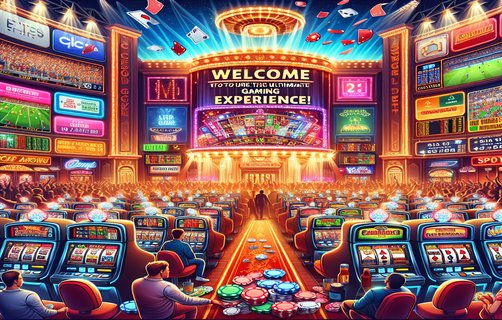The Ethics of Gaming: Navigating the Landscape of Modern Casinos
In the ever-evolving realm of gambling, the landscape has dramatically shifted with the advent of online platforms and virtual casinos. A wealth of choices presents itself to players, from casual robots brick-and-mortar establishments to engaging interactive gaming environments. Moreover, with initiatives like Royal Rummy’s enticing 50 bonus, players are drawn in by the promises of wealth and excitement. However, the real question rests not just in the lure of bonuses but in the larger moral implications of such gaming interactions.
Virtual casino developments have transformed the traditional gambling experience, allowing players easy access to a variety of games from the comfort of their homes. The inclusion of sophisticated technology creates immersive environments where players can compete against each other in real-time. This significant advancement raises ethical considerations: how do we ensure fair play in an industry often associated with deception and risk? The very nature of online gambling can foster environments where dishonest conduct thrives, leading to broader implications for player trust and the industry's legitimacy.
At the heart of this industry lies customer support, which plays a pivotal role in maintaining integrity. Companies that emphasize transparency and accessibility in their customer service demonstrate their commitment to ethical gaming practices. A strong support system can protect players from exploitation and foster a sense of security, allowing for a more enjoyable experience—one where players can focus on their strategy rather than fearing unfair practices.
An essential skill for many players is the art of poker bluffing. While often celebrated as a tactic of skillful play, bluffing also raises questions about moral boundaries. Is it acceptable to deceive an opponent for personal gain, or does it undermine the essence of fair competition? This quandary reflects broader themes in gambling: are we promoting a culture of calculated risks or nurturing one rooted in deceit?
Further compounding these queries is the phenomenon of real-time gaming, where players engage instantaneously with others around the globe. This immediacy enhances the thrill but can also lead to impulsive decision-making. Players may be tempted to engage in rash actions fueled by the high stakes environment, often overlooking the long-term effects of their decisions. This raises an ethical consideration about player responsibility and the necessity for self-regulation in gambling practices.


Moreover, the rise of third-party strategies—including software and various tools to gain competitive edges—introduces another layer of ethical complexity. Are these tools legitimate forms of enhancing gameplay or mere mechanisms of deception? Players must critically assess their methods and the potential implications of utilizing outside assistance. This challenge is echoed in the concept of deception in gambling, where deceptive practices can skew the fairness of competition.
Lastly, the emergence of the Bitcoin casino is reshaping the financial aspects of gambling, presenting new opportunities and challenges simultaneously. The appeal of anonymity and security with cryptocurrencies brings forth discussions about regulatory oversight, the potential for money laundering, and the broader effects on responsible gambling. Players must navigate not only the thrill of chasing wins but also the moral responsibility of engaging in fair and transparent practices.
In conclusion, while the allure of modern gambling, with its bonuses and real-time interactions, can ignite a rush of excitement, it is crucial to approach the experience with a sense of moral clarity. Each player must navigate these complex considerations, weighing their decisions carefully. Ultimately, fostering a responsible gaming culture hinges on integrity, respect for opponents, and ethical conduct that keeps the spirit of the game alive.
